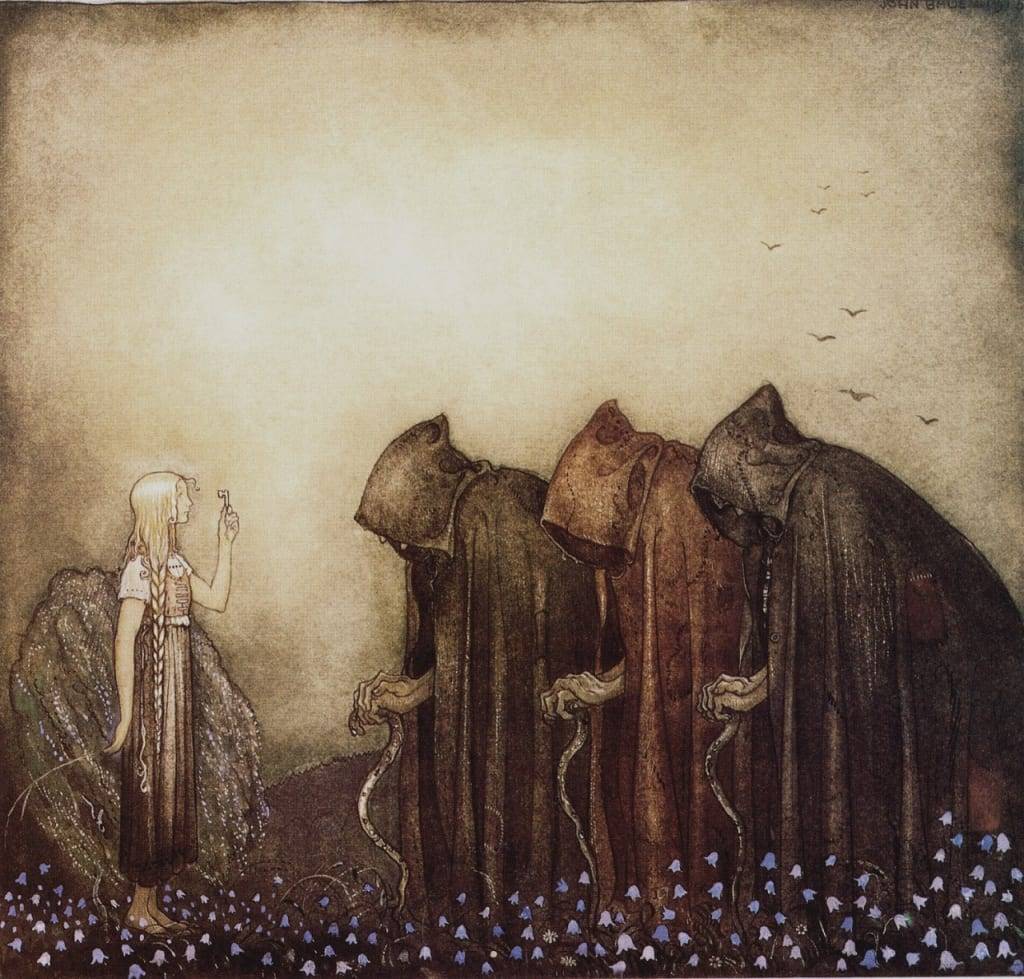A Deep Dive into 'The Golden Key': Unlocking George MacDonald's Timeless Quest for Meaning
George MacDonald's classic fairy tale, "The Golden Key," is far more than a simple children's story; it is a profound literary journey into the human search for purpose, truth, and the divine. This short work of fantasy, first published in 1867, masterfully employs allegory and symbolism to explore universal themes that continue to resonate with readers of all ages, positioning it as a timeless work of visionary fiction.
The Enigma of the Golden Key
The story centers on a boy, who, inspired by his great-aunt's tale, sets out to find the legendary golden key located at the end of the rainbow in Fairyland. The key itself is the story's central mystery: nobody knows what lock it opens. This fundamental lack of a clear-cut purpose immediately elevates the tale beyond a simple quest, turning the key into a potent metaphor for life's ultimate, yet undefined, meaning.
The boy's initial encounter with the rainbow-a vibrant, almost living arch of color-is a pivotal moment. The rainbow, traditionally a symbol of hope and a bridge between earth and sky, is not a static object. It retreats and reappears, teaching the boy the first lesson of the quest: the most profound truths cannot be seized directly through force or haste; they must be approached with patience, reverence, and humility.
Mossy and Tangle: A Journey of Two Souls
The boy, later known as Mossy, is soon joined by a girl named Tangle. Tangle, who is described as lonely and neglected, is running away from a cruel, unfeeling world, her name suggesting a tangled state of confusion or difficulty. Their meeting transforms the boy's solitary search into a shared odyssey, emphasizing that the most significant journeys in life are often undertaken in community.
Together, Mossy and Tangle embark on a trek through the enigmatic landscapes of Fairyland. This land is not a place of frivolous magic; instead, it is a realm where the laws of nature are fluid, and physical location mirrors spiritual state. They encounter a sequence of symbolic figures, including the Old Man of the Earth, the Old Man of the Sea, and the Old Man of the Fire. These figures act as guides and gatekeepers, each representing a stage of spiritual growth or an essential element of the self.
The Old Man of the Earth gifts them a special fish, a symbol of quiet sustenance and the hidden depths of knowledge.
The Old Man of the Sea directs them toward their ultimate destination.
The Old Man of the Fire provides the final push towards the final ascent.
These encounters illustrate a classic literary structure: a hero's journey where external trials lead to internal transformation.
The Theme of Endless Seeking and the Power of Growth
The most powerful theme in "The Golden Key" is the idea that the true reward of life is not the static possession of an answer, but the continuous process of seeking itself. The golden key is eventually inserted into a lock-not one they found, but one they became ready for.
MacDonald uses a striking metaphor to convey this idea: the travelers must eventually walk until the shadows fall forward rather than backward, signifying a shift from the past to a future-focused, eternal perspective. As they age throughout their journey-a process that happens differently for each of them-the reader witnesses the growth and maturation that the quest demands. They literally and metaphorically journey toward "the place from whence the shadows fall," a phrase which suggests the realm of the eternal, where true reality casts its shadows onto the temporal world.
Ultimately, the story suggests that the golden key is a master key to spiritual reality and the secrets of the universe. The final lock is the gateway to a higher existence, a transition that can only be unlocked through a lifetime of honest seeking, selfless companionship, and a willingness to transcend the limitations of the material world. It is a powerful affirmation that the pursuit of truth is its own most valuable prize.
Source: Based on an in-depth analysis of the themes and narrative of George MacDonald's short story, "The Golden Key."




No comments yet
Be the first to share your thoughts!